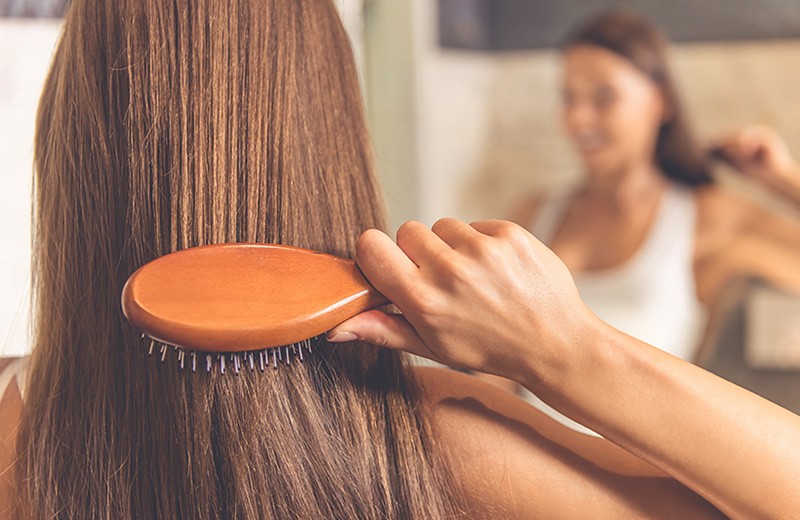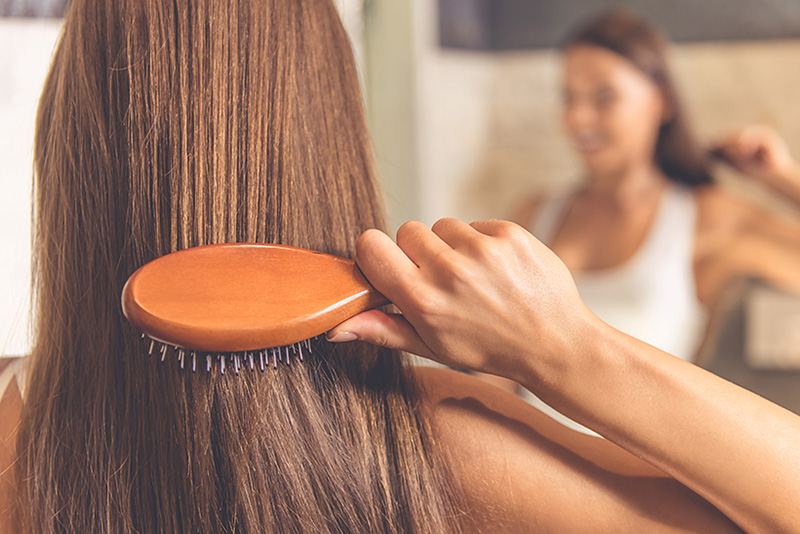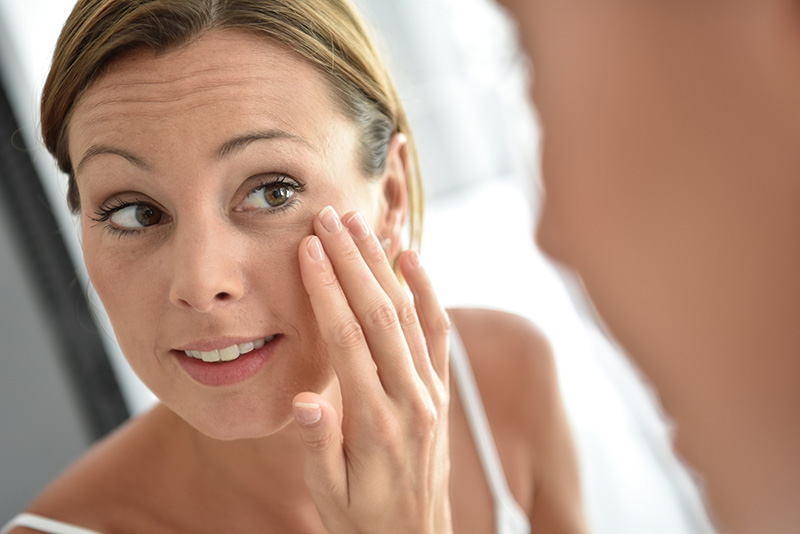
Hair falling out, bad skin, brittle nails. Even if you were fine during pregnancy, the hormone changes after giving birth will bring a few unpleasant surprises. Don't worry, these changes are common and it doesn't mean that you're sick or that there's something wrong with you. Don't panic, we'll give you some advice on what you can do.
Start from the inside
Sadly, you can't do anything to stop your hormones. Hormonal changes are something you'll just have to endure. However, the right nutrition, hydration, activity and relaxation can help you make the effects of hormonal changes a lot less severe.
Breastfeeding women should drink 2 – 3 liters of liquids every day and most of this amount should be before midday. It's best to drink plain or baby water, tea, or to eat soups. You should avoid coffee and drinks with caffeine, sweet drinks, and too much black tea. Always keep a water bottle at hand. Good hydration helps increase breast milk production and it can also help you lose a few pregnancy kilograms, as well as hydrate your skin.
Your body needs a lot of nutrition after giving birth. Breastfeeding is very straining when it comes to energy and you also lose a lot of minerals and trace elements. Because of this, you should eat a lot of vegetables and fruit, quality proteins, fats, and carbohydrates. Your skin, hair, and nails will benefit from vitamin A and vitamins B, C, D, E and H (biotin). While you're breastfeeding, you should increase your protein intake by 15 g and you should also increase your intake of calcium.
Be gentle to your hair

Your hair may begin falling out just a little or in large clumps. During pregnancy, the increased production of estrogen helped your hair grow, but this stops after you give birth. The hair loss that you may be experiencing is caused by hormones. It's just a temporary inconvenience and your hair should stop falling within a year. Within three years, your hair should be back to the way it was before pregnancy.
How should you care for such weakened hair? The fewer chemicals you use, the better. The first thing you should do is to choose quality cosmetics and, if you can, also try to use hair balm for easy combing. Frequent washing isn't good for your hair either and the majority of hair loss happens during that time. Some moms try to solve this problem by shortening their hair. You should definitely avoid using a strong or tight hair band, fanning, straightening or curling your hair, dyeing it, using hair sprays, and also avoid hairstyles that strain your hair.
Try to use scarves, headbands, and large soft hair bands that won't strain your hair too much. It's also recommended to use natural oils to care for your hair. You can also apply coconut oil to the tips of your hair after washing.
Shorter nails are more practical
A deficiency of vitamins and minerals will also decrease the quality of your nails and cause them to become brittle and to break easily. You can solve this problem in no time with a pair of scissors. Shorter nails are also more practical when caring for your baby because there's no way for you to accidentally scratch them. Nails can also become damaged by frequent washing. You should try and find a quality hand cream that contains calcium or an oil specifically made to strengthen nails.
Acne and pigment stains
Pregnancy is a truly magical period. Women who suffered from acne may get rid of it entirely and women who never had such problems may encounter them for the first time after giving birth. It's not a rule, though. Of course, hormones are to blame and problems with acne should only be temporary. You just need to be patient. You can help your skin by cleaning it regularly and using creams that are specifically developed to fight acne.

Pigment stains are another common problem that appears during pregnancy and after birth. The storm of hormones that's raging in your body helps the production of melanin which then increases pigmentation. This usually leads to the darkening of nipples, linea nigra (a black line that appears on the belly), and pigment stains on the face, neck, and hands. While the nipples and linea nigra
If the pregnancy stains don't go away, it's time to see a professional. Some moms start with skin whitening creams but those are usually too weak to have a visible effect. Not to mention, some of them can't be used during pregnancy or while you're breastfeeding. If the creams don't work, you can try some of the following procedures: intense pulsed light, chemical peeling or microdermabrasion. IPL (intense pulsed light) destroys pigment cells with light impulses. Chemical peeling uses chemicals to remove the top layers of the skin and dead cells. Microdermabrasion uses crystals to remove the outermost layers of skin and dead cells. Of course, you can only undergo these procedures after childbirth or after you've stopped breastfeeding.


